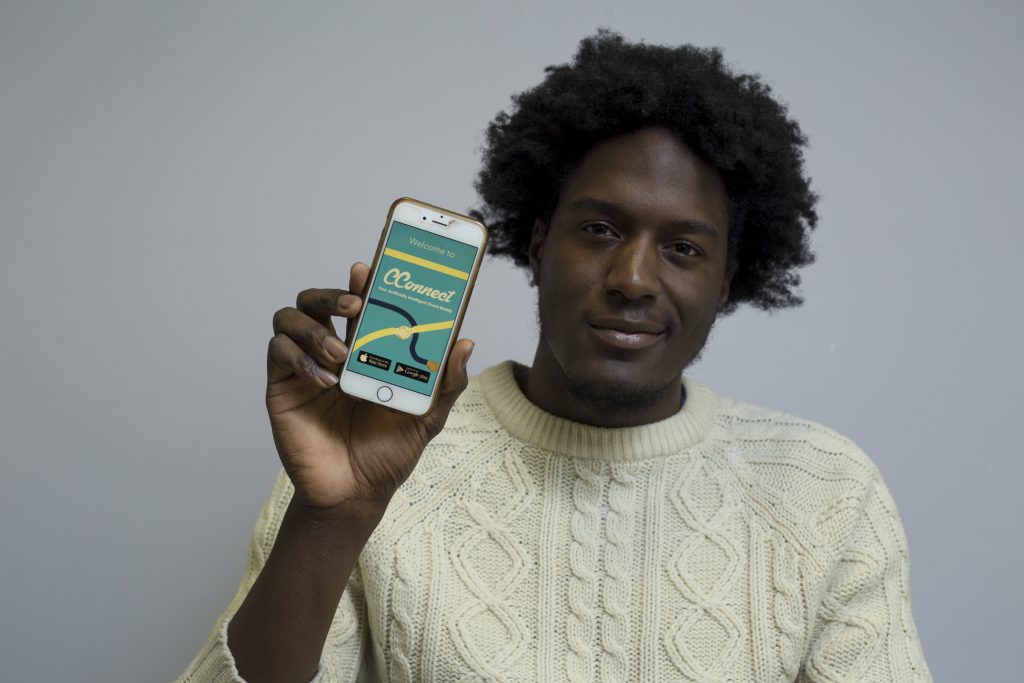
Every morning, Binghamton University students wake up to a B-Line email listing various events being held on campus. But an app created by a BU student has taken that information, which is easily lost in inboxes, and made it more user friendly.
CConnect was created by Tremayne Stewart, a first-year graduate student studying computer engineering. It was launched on April 20, and is currently available in Apple’s App Store.
The app functions similarly to Tinder: Users are prompted to swipe right or left on categories such as “sports” and “art,” and once their interests are gauged, they are presented with various events on campus they may find interesting. By continuing to swipe right or left, a profile is accumulated which the app uses to suggest more events.
“[The idea was] what if we have a system that learned the type of events you like to go to, and then went all by itself and found those events for you, then presented them to you and then reminded you about them as they were happening throughout the day,” Stewart said.
The app is currently only available for use by BU students, who can log in using their University email addresses. The app is able to recommend events tailored specifically to individual users, based on an accumulation of the user’s history and other users with similar profiles, similar to the way YouTube or Netflix make recommendations.
The project has been headed by Stewart, who designed the interface and wrote the code for the app. Neil Harris, a senior majoring in business administration, and Christine Manasterski, a student at Florida State University, are now helping spread the app to other campuses.
Stewart has met with administrators from BU and Broome Community College (BCC), and he said that the meetings were productive.
“They care about the students on campus going out to stuff and actually being a part of the campus, which in turn, builds up campus pride, which in turn, allows [schools] to do more marketing,” Stewart said.
The app will generate revenue through two different means: Currently, Stewart and his team are proposing deals with various universities in which schools can subsidize the app at around $1 per student, and Stewart will implement his software into pre-existing apps from those universities. This way, it can be tailored to match the needs of each campus it is used on.
If a university is not interested in paying for the app, Stewart said they will still operate on the campus, but look to other sources of funding. This will come in the form of targeted advertising from local businesses. Using the same algorithms that suggest specific events for users, advertisements will go toward those more likely to be interested in the product.
According to Stewart, a deal with BCC could happen as soon as July, which would allow him to implement the app on their campus for the fall 2017 semester. For BU, the process is slightly longer, but he is confident it will come to fruition.
The “lofty goal” for the app, according to Stewart, is to eventually allow it to be used in cities.
“When you go to a new city, what do you do?” Stewart said. “You download Yelp, maybe the transit app for that city, maybe Tinder if you’re going on vacation, and the idea is that you would also download CConnect as well. After you use it for a while, it builds this personality matrix of you. We want to have it geolocated so that if you go somewhere it would tell you what’s happening around you.”
According to Harris, the app will help students become more involved on campus, but it is the software behind the interface that has allowed it to succeed.
“While we have an app, we are a software development company,” Harris said. “It is very hard for students to navigate all the daily events on a campus and we will make it easy. Using machine learning we will be able to find the events that are most relevant to students based on their interests.”


